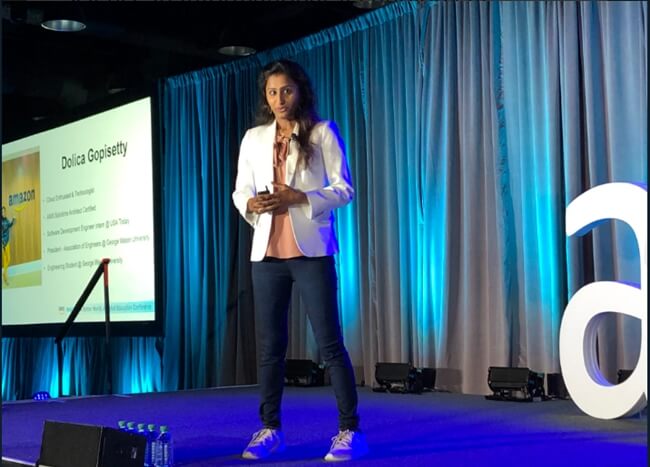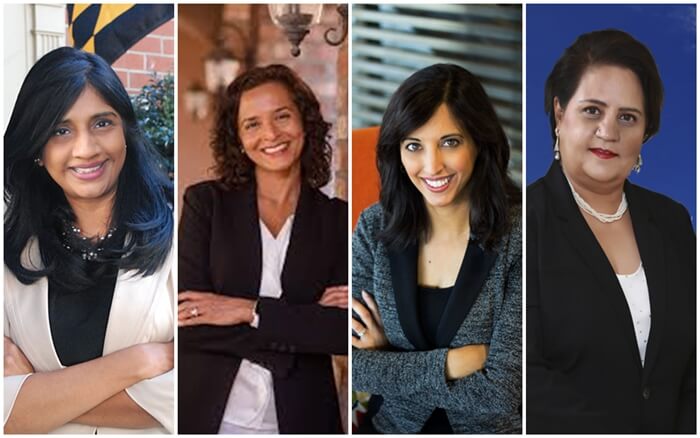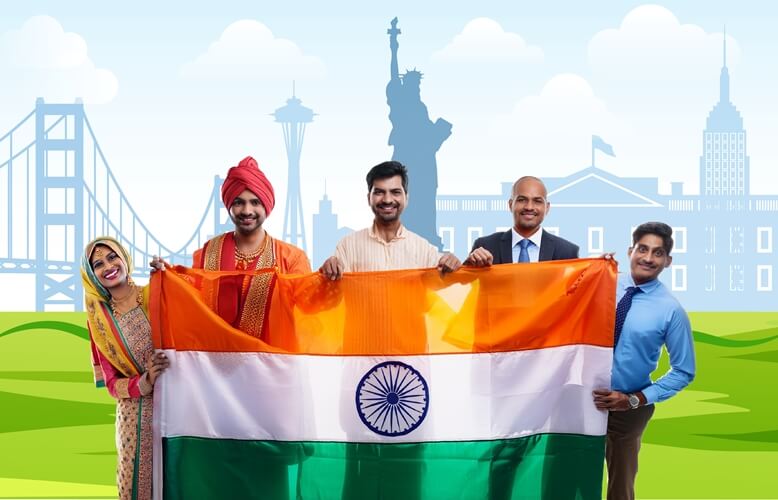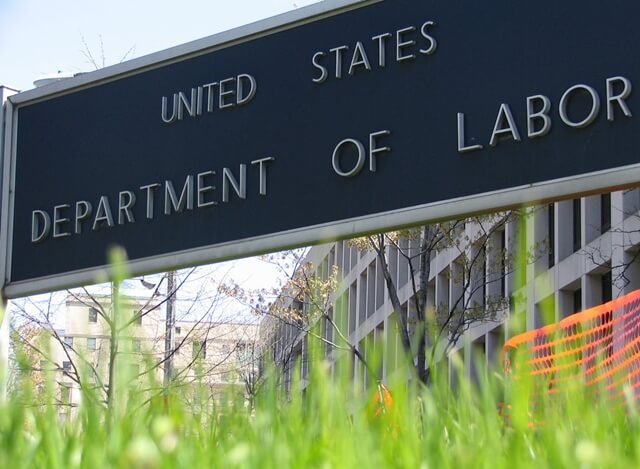Dolica Gopisetty is just another Indian American of Washington DC with extraordinary resilience, vivacity and optimism. She is a 21-year-old STEM advocate, technology enthusiast and immigrants’ rights activist. An undergraduate student of information technology at George Mason University in Virginia, she has already carved a niche for herself as one of the youngest AWS Solutions Architect Certifiers in the United States.
Her unfathomable passion for software technology catapulted Dolica Gopisetty to have been invited as a keynote speaker on cloud computing at various tech events in the US. In June 2019, she made it to the technology panel of industry heavyweights at the Amazon Web Services (AWS) summit in Washington DC. At the summit, she uninhibitedly spoke about the need to encourage girls to take up careers in STEM where women are represented as a minority. At the recently concluded AWS Imagine Conference in Seattle, she was the sole female and only Indian speaker among the eminent educators from across the world.
While empowering immigrant children in STEM, Dolica Gopisetty herself is on the verge of uncertainties ensuing from the current H4 visa doldrums in the USA. She came to the US from Hyderabad when she was 7, with her mother on H1B visa. In January 2019, she turned 21 and aged out of her H4 dependent status.

She has called the USA her home ever since she shifted to South Carolina in 2005. She grew up seeing her parents having applied for visa extensions and worried about approvals. Being a H4 dependent, she was not eligible for full-time or part-time work and scholarship opportunities. Hence, she has helplessly seen her parents bearing the load of her study expenses on their shoulders and paying thousands of dollars for her college tuition fees. She has been given a Tax ID number, but no social security number.
Having aged out of her H4 status, she lost not only every possible chance to obtain work permit (H4 EAD), but also her right to apply for the green card. All her hopes to become a legal permanent resident after living in the US for 15 years have bit the dust, and thereby forcing her to switch to an F1 visa.
In August 2018, she took a flight to India and got her F1 visa stamped. On return to the US that she calls home, she had no idea that she would be treated as a foreign student by George Mason University of Fairfax, Virginia. She realized it only when she received the tuition bill for one semester, which was three times what she paid per semester in her first three years of collage during the H4 status.
“My mother has struggled a lot to afford my education all these years, as my father’s H4 dependent status does not allow him to work legally. With F1 visa, I managed to get a part-time job and that too not without difficulty. All I can afford with my part-time income is only my accommodation. I have heard that the US is a land of opportunities. But I am still waiting for opportunities to come my way,” said Dolica Gopisetty with a heavy heart.
However, this is not the end of what non-resident aliens like her go through in the USA. She has her share of the currently prevailing concerns about H1B visa. She thinks that if the circumstances pertaining H1B worsen further in the coming years, it will be difficult to find an employer for her H1B sponsorship.
Even if fortune favors her with an H1B sponsor on completion of her BSc degree in information technology, her struggle to get a Green Card will be continuing unless the Fairness for High-Skilled Immigrants Act becomes a law to remove the Green Card backlog. She is one of the nearly 200,000 Indian-origin children among the ‘DALCA kids’ (Deferred Action for Legal Childhood Arrivals) who were legally brought to the US by their parents on H1B visa or other work visas.
However, Dolica Gopisetty does not let all this slow the tempo of her life in the USA and blow away her optimism. She stands her ground against the fear of visa-related uncertainties in the country that she has felt to be her home since 2005.
Brought to you by Indian Eagle, a leading air travel booking partner of Indians in USA, this relatable story of Dolica Gopisetty is part of the continued series of inspiring stories about young Indians in America, at Travel Beats, a thriving overseas Indian community portal for desi news, US visa and immigration updates.









This is a rare case of H4 where someone came here as a kid and aged out their H4 visa. Most of the H4 visa holders are spouses of H1-B visa holders who come to US after marriage and start complaining about lack of jobs. I feel compared to most of Europe and Asia Pacific US has laid back immigration policies until recently. This is why lot of IT consulting companies have exploited loopholes in US immigration system for many years. Lets not just talk about one side of the issue.
You have no clue what you spoke here. Did you read that about 200K people who came as children now out of their parent’s legal status.
>she had no idea that she would be treated as a foreign student by George Mason University of Fairfax, Virginia. She realized it only when she received the tuition bill for one semester, which was three times what she paid per semester in her first three years of collage during the H4 status.
That’s strange, for someone as bright as her. A shock, I’m sure, but not completely unexpected.
Luckily, she only has a year left. I assume she is making some money from her AWS gig. For graduate studies, she can probably get scholarships, even as a foreign student; or an assistantship, that may help qualify her for local tuition.
The cost of getting a four year Bachelors for US kids is often ignored by people coming in from India, thinking they are better than the local people because they have degrees. Yes, some kids aren’t that interested in studies – but cost is also a prohibitive factor for bright kids from lower income levels that are not comfortable with huge amounts in loans.
I think that all these issues are just one sided picture. I might be wrong but I know many Indians who are not Citizens/Green Card holders pay less taxes due to their visa status. I will also say, that when we US citizens go to India, we pay higher fees (places such as Taj Mahal and other destinations) because we are US citizen. How many immigrant Indian’s children draft in US Armed forces – I don’t know any. Your country is not where you grow up but where you have rights as citizen. I have sympathy (as I have many nephew and nieces in the same situation as this bright young lady), but I think it is fault of the media, society and the parents who tell the children that “they are US Citizens”. They are NOT US citizens, they are living as “Guest” in US. A simple example is – If I come and stay at your place for few months and then extend it for few years and another few years – do I really own your home because NOW I know customs of your home more than my home?
Again, I am not Immigration but I find it hard to believe that people just get this “notion” that this is my country, even when they are on visitor visa, F1 Visa, H1 visa, H4 visa. If you are in Europe, you will not think like that. The immigration is much more difficult there. I have heard that if you move to Singapore, it is the same or worse.
By the way, the same people can’t complain that they can’t buy land in Kashmir or Dehradoon even when they live all their lives there. So, rather than being shocked, first think why you believe you are entitled – on what basis?
It’s odd that she did not know the implications and consequences. Either she is acting dumb or is really one. Hard to believe some claims.
Indian education is a lot better value for the money. I suspect she is from Andhra or Karnataka, who call US their home and not India.
Sorry for the situation, but we all know and should know there is No free lunch folks!
Everyone are happy to go back if they don’t like USA rule of law. Just obey the rule of law of USA.